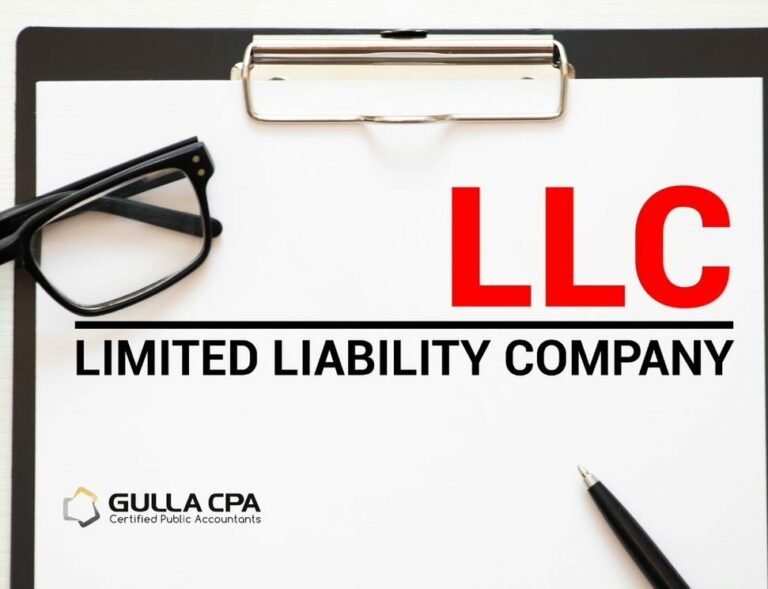Introduction
In recent years, limited liability companies have emerged as the ideal business structure for many small to medium-sized entities in a range of industries. It’s easy to see why, as they are more flexible and tax-efficient than other, more traditional arrangements. Their hybrid nature allows the company to capitalize on many of the benefits of both partnerships and corporations, offering liability protection while sidestepping double-taxation. If you’re wondering how to start an LLC in Michigan, rest assured that the mechanics and process are simpler than you may think.
The focus of this article is to guide you through the key considerations and steps when creating an LLC in Michigan.
How to Start an LLC in Michigan
Step #1 – Select a Name
Your first step of the process will be to select a suitable business name. Before you decide to finalize a name, consider the following:
- Does it align with the Michigan naming requirements? Per LARA, your selected name must include the words “Limited Liability Company” or an abbreviation of such. Additionally, it may not include the words “corporation,” “incorporated” or an abbreviation of either of the two. One must also be sure that the chosen name does not imply the company is organized for a purpose other than that claimed in the Articles of Organization (discussed later) – such as, for example, non-profit purposes. You can find all of the rules outlining the naming of a Michigan LLC here.
- Is it available? Michigan also requires that the name of the LLC be unique. While it can easily be adjusted to pass the test, such as by abbreviating a word, selecting a name too similar to another entity in the industry may cause confusion and prevent your company from standing out. Additionally, the domain or URL you would like to use may already be taken. You can use the LARA business entity search to confirm your selection is available.
- Is it memorable? Ideally, you should choose an LLC name that people can easily remember and search. While puns and plays on words can be catchy and fun, avoid anything too confusing, such as replacing letters with numbers or special characters.
Step #2 – Select a Michigan-based Resident Agent
When filing your Articles of Organization, you are required to list a resident agent (“RA”). Also called a registered agent, a resident agent is an individual who receives tax and legal documentation on a business’ behalf. Anyone residing in the state can act in this capacity, so it’s entirely possible to bypass hiring someone for the role. However, an address must be listed for the RA, and the Articles are public record. Therefore, if going this route, it’s recommended to obtain a local P.O. box or virtual office address to use in place of the individual’s personal address, which can cost as much as the service. Additionally, an RA helps business owners stay compliant with filing requirements and deadlines through reminders and, sometimes, filing documents on behalf of the company. Do your research before making a decision as to whether or not you should hire an RA for your Michigan LLC.
Step #3 – File Form 700, Articles of Organization
Once you’ve chosen a unique name and a registered agent, you’ll have all the information necessary to file the Articles of Organization. This document is filed with the Corporations Division and acts as the application for your LLC. You can register in person in Lansing, but for the sake of convenience, it may be easier to apply via mail or online. There is a one-time application fee of $50, with additional charges if expedited service is required. Unlike the Annual Statement (discussed later), the Articles of Organization are only required to be filed once, upon formation of the LLC.
Step #4 – Apply for an EIN
The last step of the process is to obtain your LLC’s Employer Identification Number (“EIN”). This nine-digit number is used to identify your business in the eyes of the government, similar to how social security numbers are used to identify individuals. While EIN’s are not technically required in the formation of an LLC, they are necessary to open a bank account, hire employees and, depending on which tax status you choose for the company, to file your tax returns. An EIN can be applied for online or by mail or fax. Online filers will receive their number immediately, while those who file by mail or fax should receive a letter in the mail within about a week. There is no cost to apply, but you may want to work with an accountant to ensure the form is filled properly and that any other necessary documents (such as an election to be taxed as an S Corporation) have been filed.
Other Considerations
Though not all of the below will be necessary in every circumstance, we suggest taking each of the following into account:
- Filing the annual statement. While an annual statement is not a required filing at the time of LLC formation, one will need to be filed with the Michigan Department of Licensing and Regulatory Affairs (“LARA”) annually in order to maintain the entity’s active status. Form CSCL/CD-2700 is due by February 15th each year and costs $25 to file. It may be completed online or by mail.
- Electing an alternate tax status. Unlike other entity structures, an LLC can be taxed as either a sole proprietorship, a partnership, an S Corporation or a C Corporation. Depending on the way in which you’d like your Michigan LLC to be recognized for tax purposes, you may need to file additional paperwork to make your selection. For additional information on available tax classifications, you can read our other recent article here.
- Creating an Operating Agreement. In Michigan, members are not required to have an operating agreement. But in most cases, it is better to have one. The operating agreement is a legally binding document that highlights the operating processes and ownership rights of LLC’s. It may outline whether the organization will be member-managed or manager-managed, ownership/profit and loss percentages, and what duties and activities each member may or may not carry out. Having these details written out can help avoid future disagreements between members. Your operating agreement documents should be comprehensive to avoid potential conflict in the foreseeable future.
- Filing for any necessary licenses and permits. Businesses with certain operations or in certain locations may be required to file for licenses or permits with their local government(s). Any entity looking to sell alcohol must obtain an alcohol license. If sales tax is required to be withheld on goods, a sales tax permit will be necessary. Check with the city you plan to operate in to confirm all licenses and permits you will be responsible for.
- Take meeting minutes. One of the benefits to LLC’s over corporations is the reduction in legal responsibilities, and this includes the potential lack of requirement for documented meeting minutes. However, they can be useful for a variety of reasons. Meeting minutes serve as official records and can be important to have on file in the event of an audit or lawsuit. They can also be used to track meeting attendance, as well as the company’s progress in meeting its goals. Before writing this responsibility off, consider whether the benefits may outweigh the hassle of keeping these on record.
Final Thoughts
Whether starting a new business or incorporating an existing one, the idea of creating a legal entity can be intimidating. While it’s entirely possible to go through the process alone, rest assured that there are resources you can turn to for assistance. Gulla CPA has helped a great deal of clients get their companies started on the right foot, from general consultation to full entity formation. If you’d like to speak to one of our CPA’s about your business needs, book a free consultation by filling out our inquiry form.













